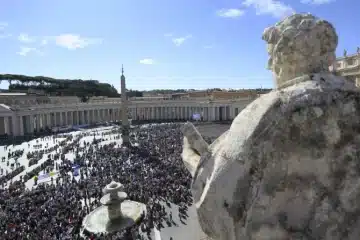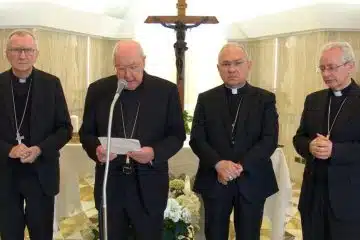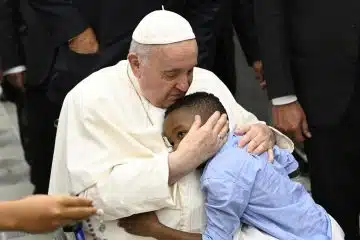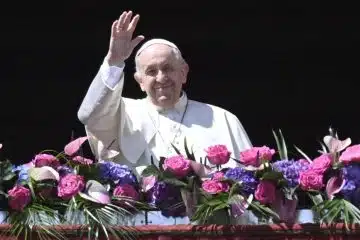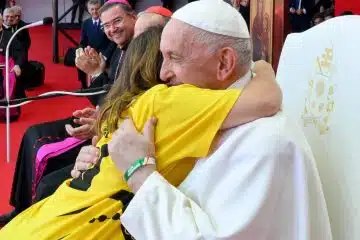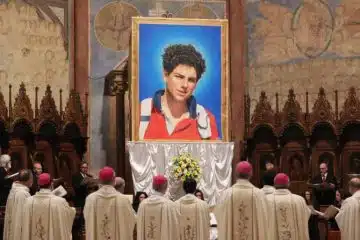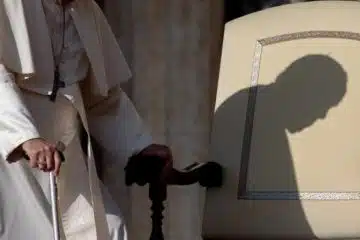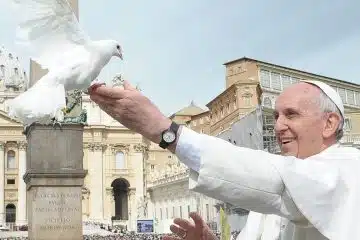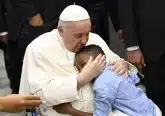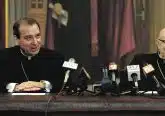What keeps me Catholic? Conscience
September 1, 2012
By Michael Daley
The Freeh Report was both direct and damning in its assessment of Penn State’s response to former coach Jerry Sandusky’s abuse of children: “this evidence presents an unprecedented failure of institutional integrity leading to a culture in which a football program was held in higher esteem than…the values of human decency.”
After reading it through the first time, I couldn’t help but reword “institutional integrity” to “institutional conscience.” Conscience, as we all know, is that valuing, thinking, reflecting, judging, acting, and, ultimately, humanizing part of ourselves. If we lack one or, more importantly, are deficient in its formation and honoring, our humanity and others’ lives are often compromised. Tragically, the president, vice president, athletic director, and head football coach of Penn State enabled a child predator to rape children for “fear of or deference to the omnipotent football program.”
As the Penn State case and other economic, political, legal, and religious episodes over the years illustrate so well, there is a great temptation when it comes to institutions and conscience. Ideology can trump humanity. Rather than follow Christ who said, “Let the children come to me…for the kingdom of heaven belongs to such as these” (Matthew 19:14), we can embrace the philosophy of Caiaphas who, at the Sanhedrin trial of Jesus, said, “better for you that one man should die instead of the people, so that the whole nation may not perish” (John 11:50).
Though I’ve never been comfortable with the slogan WWJD (“What would Jesus do?”), I’m convinced that conscience is an encounter — a living relationship — between Jesus, the context of my life and times, and the Catholic faith community that I am a member of. Forming it, exercising it, living it is no easy task in our fractured and polarized world. Yet, through conscience we express who we are as human beings made in the image and likeness of God. Sadly, such is the horror, destruction, and pain when it appears that conscience has not been followed.
Here it bears repeating the significant words and weight that the Second Vatican Council places on conscience: “In the depths of his conscience, man detects a law which he does not impose upon himself, but which holds him to obedience. Always summoning him to love good and avoid evil, the voice of conscience can when necessary speak to his heart. . . For man has in his heart a law written by God. To obey it is the very dignity of man; according to it he will be judged. Conscience is the most secret core and sanctuary of a man. There he is alone with God, whose voice echoes in his depths” (“Pastoral Constitution on the Church in the Modern World,” #16).
It is in this call to search for the truth, to obey conscience, and to listen to the voice of God that the church plays a vital and necessary role. Whether it be abortion, immigration, euthanasia, war, marriage, health care, and still others, it is incumbent upon me not only to know what the church teaches but why. As for my desired decision, the church’s teaching may be confirming, challenging, or confounding. As a Catholic Christian, however, I must bring the substance of the faith into consideration and conversation with the whole of my life. More often than not we will find the two in agreement rather than opposition.
Only then does the oft quoted line by the recently canonized English saint, Cardinal John Henry Newman, make sense: “Certainly, if I am obliged to bring religion into after-dinner toasts…I shall drink — to the pope, if you please, —s till to conscience first, and to the pope afterwards.”
The primacy of a rightly formed conscience: it’s what keeps me Catholic.
Daley is a freelance writer and teacher at St. Xavier High School.


